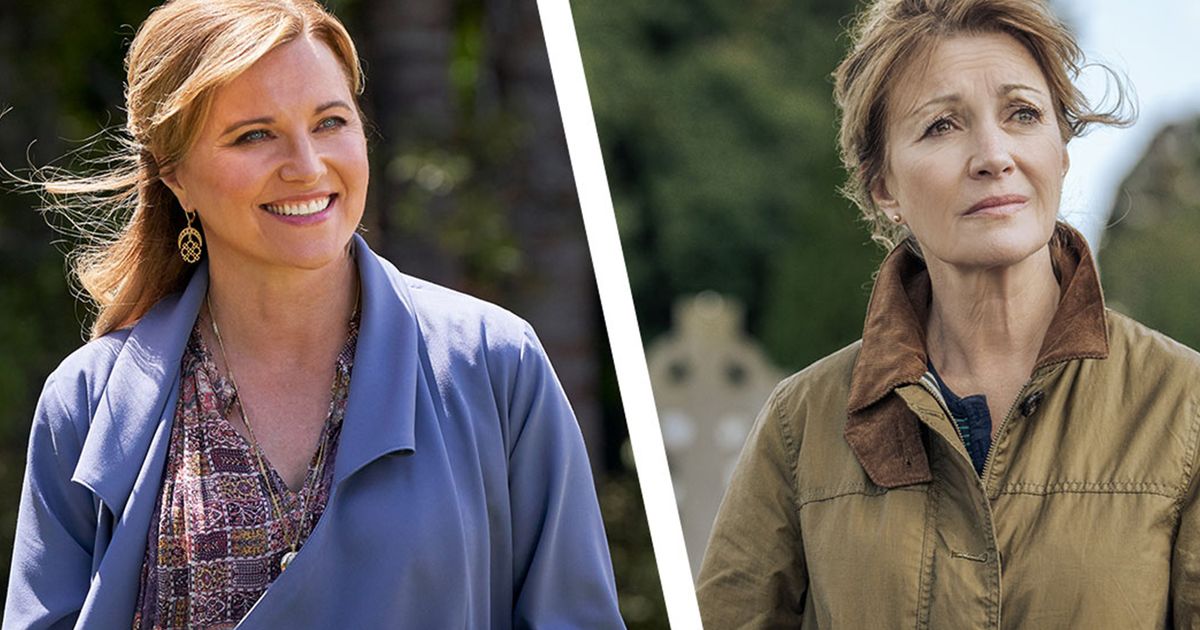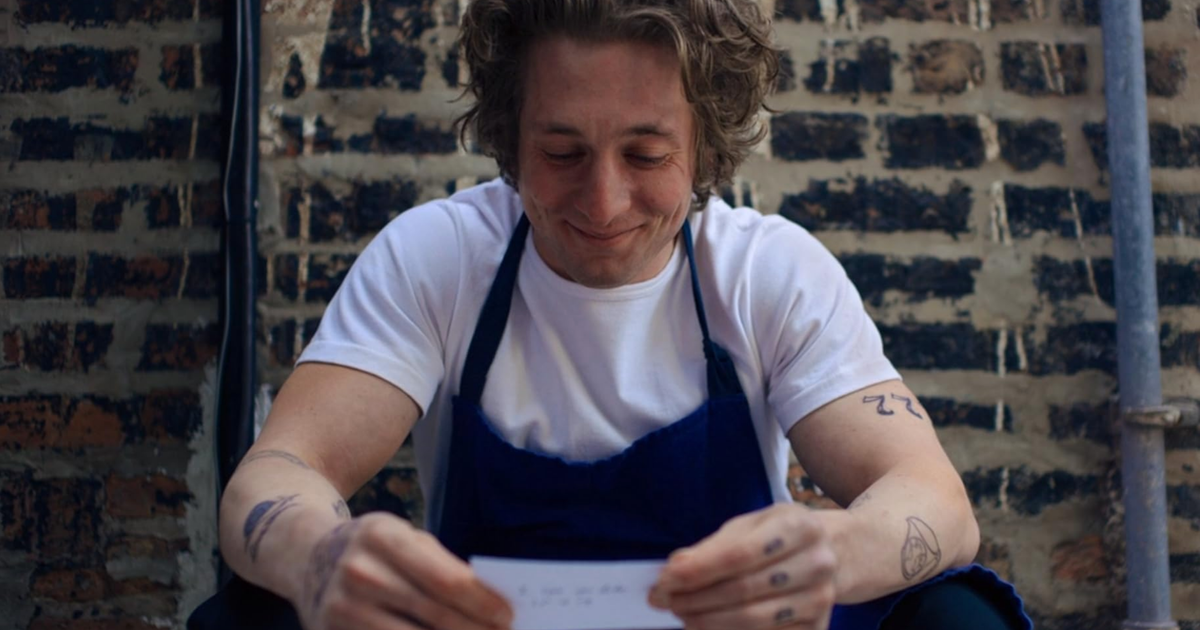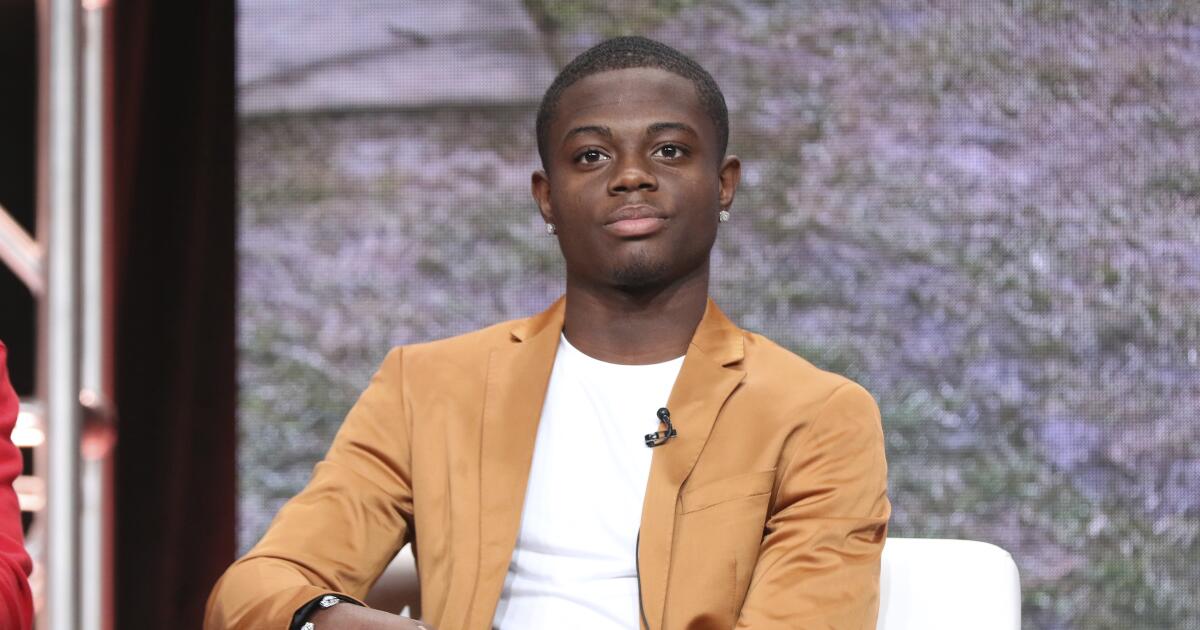The Bear and Baby Reindeer.
Photo-Illustration: Vulture; Chuck Hodes/FX on Hulu/Everett Collection, Ed Miller/Netflix/Everett Collection
After being subjected to weeks of omnipresent “for your consideration” ads and countless invites to screening events and cocktail mixers, members of the TV Academy have finally arrived at the time for choosing: Voting opens today on nominations for the 76th annual Emmy Awards. And while Peak TV may be over, the competition for the small screen’s most-coveted kudo remains plenty fierce, with prestige television powers HBO and Netflix facing intense competition this year from a red-hot FX, a resurgent Prime Video, and a very prolific Apple TV+. In other words, this year’s Emmy season could actually be interesting.
And yet, as much drama as the 2024 race promises, it comes at a time when most of the major streamers have been sending a not-so-subtle message to the creative community that popularity is much more important these days than plaudits. Awards buzz is nice and all, but most streamers now are obsessed with cooking up what Netflix content chief Bela Bajaria famously called “gourmet cheeseburgers” — good-enough TV that feeds the masses but often leaves critics hungry. So far, this shift hasn’t filtered down to the potential pool of Emmy contenders: There are still more than enough awards-worthy shows for voters to honor. But with so many platforms other than Netflix scaling back budgets and making fewer shows overall, that might not be true for much longer.
Someone who knows a lot more than I do about the ins and outs of awards season is Joe Reid, a veteran entertainment writer who earlier this spring joined Vulture as our TV awards guru-in-residence. For this week’s Buffering, I connected with Joe to get an update on where things stood in this year’s battle for statuettes, what surprises we might see when nominations are announced next month, and how he sees future Emmy races evolving as streamers adapt to the new realities of streaming. Also, if you haven’t already, sign up for Vulture’s Gold Rush newsletter to get Joe’s Emmys insights delivered to your inbox weekly.
Mr. Reid! Let’s talk Emmy season. I actually want to start by getting your thoughts on how the jockeying for TV awards has evolved over the last decade or so. As someone who spent a decade at Variety at the start of this century, I know full well that studios and talent campaigning for kudos is not at all a new phenomenon. But it always felt much, much less ferocious than what we see on the film side of business, particularly with the Oscars. Now, in the streaming era, I’m not so sure. You cover both races, so what do you think?
Joe Reid: Oh, sure, that’s definitely been noticeable over the course of the past several years. For one thing, just in general, everything in the industry feels more high stakes and fraught than it did a decade ago. Chalk that up to the increased volume that social media brings to everything, the increasing instability of the business (making the boost of an award feel that much more urgent), or some combination of both. There’s also the fact that over the years, studios and production companies have just gotten better and smarter at awards campaigning. There are whole departments that develop awards-season plans and strategies; they’ve learned the lessons from past years, they know how to game the system (when to roll out a show; what category to submit in), and in general they’ve made things much more streamlined. In a way, that’s made it more fascinating to cover; in another way, it’s worse because everybody’s following the same game plan, which can get boring.
Specifically when it comes to TV, one of the big changes that the streaming era has brought has been the dismantling of the TV calendar. In the networks’ heyday, shows premiered in September, aired their most high-profile episodes during November and February sweeps, and then had their big finales in May. Summer was for reruns and burn-offs. That calendar no longer exists in any impactful way. Certainly not when it comes to how awards season is shaped. TV shows can and do premiere all across the calendar. And since one of the lessons that the awards strategists learned from Oscar campaigning is to premiere your big guns in the last four to ten weeks before the end of the eligibility period, the streamers have now all decided to premiere a huge chunk of their big Emmy hopefuls in April and May, turning this time of year into prestige armageddon.
In the old days, May was when the prestige shows were wrapping up their 22-episode seasons that have been running since September. These days, a streamer will binge-drop ten episodes of a brand-new, highly pedigreed series that it hopes can crash the Outstanding Limited Series category and expect the culture to process it and the industry to get behind it within a matter of days. If that sounds insane, it’s because it is.
I think we saw the peak of Peak TV Emmy madness about two years ago. I witnessed the fallout in the Vulture TV department’s Slack conversations: Our editors and critics wandered around in a daze for weeks, barely able to communicate in full sentences after the barrage of so many prestige shows in such a short time frame. Things seem a little more manageable now, but clearly, it’s still pretty packed. But let’s drill down to this year. In your mind, what’s the biggest open question mark for this Emmy season?
I think what I have are a lot of smaller question marks that add up to one big question mark: Who’s on top right now? After the strikes, after the end of Succession and Ted Lasso, with The Crown heading out the door this year, after David Zaslav plunged a big filthy hand in and mangled the guts of HBO, who has emerged at the top of the heap?
In terms of total nominations, the answer will almost certainly once again be either Netflix or HBO, with the edge going to Netflix by virtue of its unfathomably vast content library that will pull down nominations across all sorts of genres and technical achievements downballot. Look at it this way: Last year, Netflix trailed HBO/Max in total nominations 127–103, and that was with HBO’s top three shows (Succession, The Last of Us, and The White Lotus) pulling in 74 total nominations versus Netflix’s top three (Beef, Dahmer, and Wednesday) pulling in 38. That’s not going to happen this year on the back of shows like Hacks, True Detective: Night Country, The Gilded Age, and the final season of Curb Your Enthusiasm.
At the same time, you can expect to see a whole bunch of head-scratching if Netflix finishes first in nominations when its biggest shows this year were Baby Reindeer, Ripley, The Gentlemen, John Mulaney’s chaotic L.A.-set talk show, and the limping final season of The Crown.
The shows that are expected to dominate the biggest categories this year (acting, writing, directing) come from all over the streaming map: FX is going to clean up with The Bear and Shōgun and stands a reasonably decent shot at sweeping the Comedy, Drama, and Limited categories if Fargo can make a surge. Amazon’s Prime Video is making as big a push as it ever have with Expats, Fallout, I’m a Virgo, and Mr. and Mrs. Smith. Showtime should see decent returns on The Curse and Fellow Travelers.
And then there’s Apple TV+, which appears to have tried to match Netflix for volume, at least when it comes to scripted TV. It is currently pushing four shows for Outstanding Drama (Slow Horses, The Morning Show, The New Look, and Sugar), four more for Limited Series (Lessons in Chemistry, Masters of the Air, Manhunt, and Franklin), and comedies Palm Royale and Loot. There is a likely path to five to seven of those shows getting Best Series nominations. And that’s not even getting into long-shot hopefuls like Silo, Hijack, For All Mankind, Foundation, Platonic, The Buccaneers, Physical, and Monarch: Legacy of Monsters. All of this on a platform that most people don’t even have. Clearly, Apple is hoping to make a splash in its overall nominations total, and it’s going to be a little sad to watch it get bodied by Netflix getting 100 nominations for its reality shows.
Yeah, for me, Apple TV+’s tally is the biggest outstanding question I have for this season. It clearly aspires to be to the streaming age what HBO and Showtime were to the cable era, at least in vibe. Getting consumers to make that connection will be a lot easier if it can start boasting about Emmy noms in a big way, and I think that if those don’t materialize in the next year or two, we could see Apple shift strategies. But, conversely, I wonder if this year could end up being peak Emmy for Netflix — and maybe even Prime Video? Their sheer size means they’re always going to have a decent amount of contenders. But leaders at both platforms have made it clear they’re more interested in “gourmet cheeseburgers” now.
The Apple of it all is interesting, because it just came out of a three-year span where it had one of the dominant comedies at the Emmys, in Ted Lasso, and yet it hasn’t seemed to do much for its brand identity as a TV platform. I don’t know how Apple goes about fixing that. Maybe it’s just attrition. If Slow Horses and Palm Royale and Lessons in Chemistry all get major nominations this year, and then Severance returns to form for next year, that kind of success will make people pay attention.
I think Netflix has gamed the system enough in the niche categories that tend to show up at the Creative Arts Emmys that they won’t fall too far in terms of overall nominations. But in terms of major nominations and prestige shows, this year, with the final nominations for The Crown, could be the end point of an era of respectability for Netflix. I think other platforms do prestige better anyway — including Prime, if it could find a way to get an audience for it — so maybe that’s for the best.
So, you sort of called the FX decision to turn Shōgun from a limited series to a standard drama so that it can compete for Best Drama. If we actually get more (good) seasons, then I suppose there’s no harm — though it does irk me that things designed as what we used to call “miniseries” end up competing against shows designed to tell multi-season arcs (see also The White Lotus.) Does this also bug you? And if not, is there some other current quirk of the modern Emmys that you’d fix immediately if you were given the power to remake the process according to the whims of Joe Reid?
As an awards follower, I tend to wax and wane between my stickler instincts and my “whatever it takes to get good work recognized” side. Limited series like Downton Abbey and The White Lotus transitioning to dramas prods at that stickler instinct for sure, but that’s mostly when the shows hang out in the shallower competition pool of Limited Series in order to avoid competition, before declaring their intention to become a recurring series after the fact. This year, Shōgun is actually being forthright and making that call before voting happens (though you could argue that this year the competition in Drama Series is weaker than Limited Series; it’s all gamesmanship, in the end).
The rule that I’d really want to wave a magic wand over and fix to my specifications concerns the recent trend toward shows receiving three, four, even five nominations in the same category. This mostly concerns the supporting-acting categories in Comedy/Drama/Limited, but I ask you truly: What is more important to the enjoyment of an awards show than robust and diverse supporting-acting categories? (The answer is nothing!)
It’s super-boring when two shows gobble up all eight nominations in a single category. And it doesn’t do the job that awards shows are supposed to do, which is introduce TV viewers to great shows that they might not be watching. My simple solution is to put a cap on the number of nominations any given show can receive in a single category. Set that number at two and see what happens. The downside is that, to use last year as an example, someone like Alan Ruck from Succession or Meghann Fahy from The White Lotus get iced out because they have multiple co-stars with better name recognition.
I would also impanel a jury to rule on eligibility and categorization questions like “Is The Bear a comedy or a drama?” so we can finally all accept that half-hour dramas are both real and spectacular.















